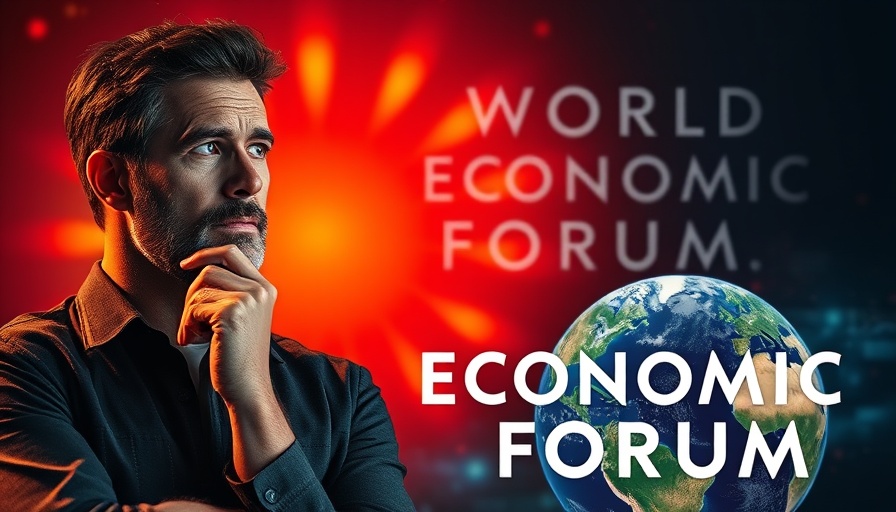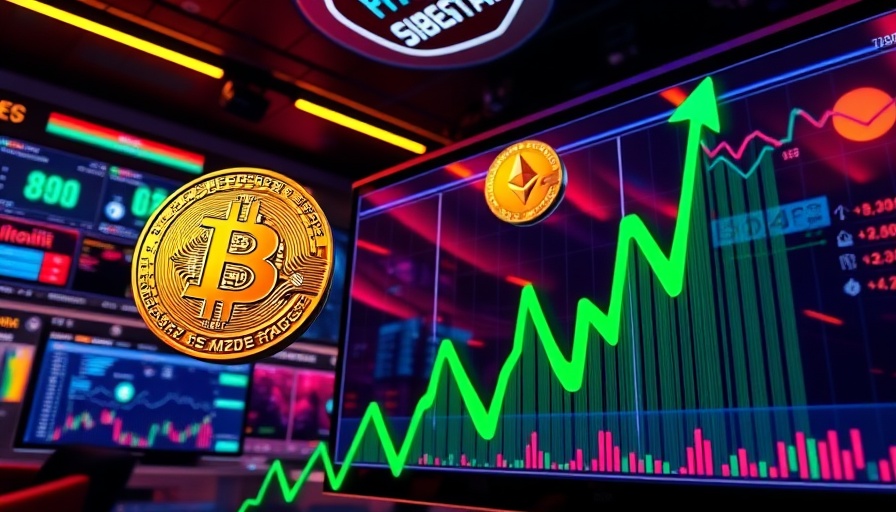
WEF's Summer Davos: A Glimpse into Global Economic Shifts
The World Economic Forum (WEF) has long been a focal point for discussions on global economic governance and future trends affecting everyone from policymakers to everyday citizens. As the elite convened at this year's Annual Meeting of the New Champions in Tianjin, China, key insights emerged on how the changing global order is impacting various economies.
In 'WEF’s Secret Davos Meeting EXPOSED – This Changes Everything!', the discussion dives into critical insights from the Summer Davos, exploring key themes that sparked deeper analysis on our end.
Why Attendance at Summer Davos Matters
This gathering is not just a summer retreat for the privileged; it serves as a crucial platform for steering discussions around entrepreneurship and emerging global threats. Understanding the developments from the Summer Davos can unveil potential pathways for market trends and societal impacts, making it essential for investors and analysts alike.
A Changing World Order: The U.S. vs. China Dilemma
One of the central themes discussed was the bifurcation of the world into a U.S. and a Chinese sphere of influence. The tensions revolving around trade, AI technology, and geopolitical strategies were palpable. As Jeffrey Frieden pointed out, the established U.S.-led global order is showing signs of chaos, potentially leaving room for China to fill the void.
This emergence of two poles necessitates a reevaluation of investment strategies, particularly regarding which markets may thrive under these new geopolitical dynamics. Interested investors should consider how policies and sentiments could disrupt traditional market behaviors.
Pressing Economic Concerns: What Lies Ahead?
The theme for the conference, "Entrepreneurship for a New Era," reflected on how current global crises—be it inflation, supply chain disruptions, or conflicts—pose risks for consumption and overall economic stability. While some panelists suggested a pivot towards more authoritarian governance to ensure stability, the implications for democracy and market freedom loomed large. The push for a more controlled economic environment raises questions about how such measures would affect consumer behavior and market health.
Technology and Capital: For Better or Worse?
Discussions surrounding the newest and top emerging technologies painted a picture of a dilemma: how can economies grow when technological advancement is set to displace workers? The shift towards AI and biotechnology brought light to the unsettling reality of ‘dystopian’ potential if this trend is left unchecked.
Investors should tread carefully here; advancements in blockchain technology and decentralized finance (DeFi) may offer new opportunities for growth amid these changing landscapes. Understanding the implications of these technologies will be essential for navigating investment decisions moving forward.
Will the Eurozone Rise as an Economic Power?
Another significant discussion came from European representatives, who examined the role of the EU in a potentially new global hierarchy. With all eyes on how the EU might capitalize on the ongoing U.S.-China tensions, there are significant economic ramifications to consider. The EU must overcome internal fragmentation to emerge as a viable third pole; however, hiccups related to economic sovereignty could hinder progress.
This evolving narrative should prompt investors to actively assess the EU's future, particularly in sectors where it holds competitive advantages over its counterparts.
How Economic Theories and Beliefs Shape Reality
Significantly, the conference spotlighted how theoretical economic trends may shape real-world outcomes. For example, the discussion led to questions about the sustainability of GDP as an indicator of economic health, given that it often does not reflect individual quality of life.
With sentiments growing around this topic, there is potential for legislative changes that could affect market operations. Staying informed on potential policy shifts will be critical for market participants aiming to adjust their strategies accordingly.
Conclusion: The Big Takeaway from Summer Davos
The overall sentiment from the Summer Davos indicates a world perched on the brink of economic, political, and social change. Understanding the implications of emerging technologies and shifting geopolitical alliances provides a roadmap for market readiness.
As we transition into this new economic narrative, those engaged in the cryptocurrency sphere and blockchain information should remain vigilant and proactive in harnessing these evolving trends. By doing so, they can better position themselves in the face of uncertain futures.
If you found these insights compelling, consider exploring more cryptocurrency education resources within the Coin Bureau suite. Knowledge is key in navigating complexities.
 Add Row
Add Row  Add
Add 




Write A Comment